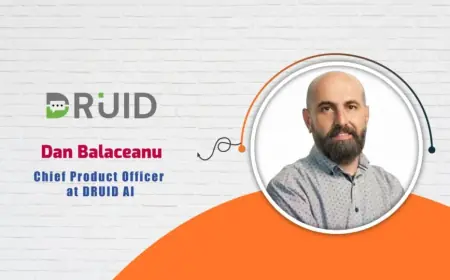The Business of Future Music Royalties: What Every Artist Should Know

The music industry is undergoing a profound transformation, fueled by the rise of digital platforms, artificial intelligence, and decentralized technologies. For artists, these changes bring both opportunities and challenges. Central to this evolution is the concept of future music royalties, which offers a new perspective on how artists can secure earnings from their creative works. With the right knowledge, artists can navigate this evolving landscape, maximize their income, and ensure their music generates long-term value.
For musicians, understanding the intricacies of future music royalties is no longer optional. Whether you're an independent artist building a career or a seasoned professional, adapting to this new era is essential. This article dives into the key aspects of future music royalties and how you can position yourself for success in a fast-changing world.
Understanding Music Royalties: The Basics
Music royalties have traditionally been a cornerstone of the industry. These earnings stem from the licensing, performance, and distribution of music. Broadly speaking, royalties are divided into several categories, including performance royalties, mechanical royalties, and synchronization royalties. Each plays a unique role in how artists are compensated for their work.
While the traditional system provided a framework for compensating creators, it was often criticized for its lack of transparency and efficiency. Artists frequently faced challenges in tracking earnings, especially when their music was played across multiple platforms and regions. This lack of clarity underscored the need for a better system—one that would empower creators and provide real-time insights into their earnings.
The Rise of Streaming and Its Impact on Royalties
The streaming revolution has fundamentally altered the way music is consumed and monetized. Platforms like Spotify, Apple Music, and YouTube dominate the landscape, offering unparalleled access to global audiences. However, these platforms also introduced complexities in royalty calculation. Artists are now compensated based on metrics like streams and viewer engagement, which are often difficult to monitor accurately.
One of the primary issues with streaming royalties is their disparity. While major artists with millions of plays can generate significant income, smaller and independent creators often struggle to earn a livable wage. This has led to calls for more equitable distribution models and innovative approaches to royalty management.
Future Music Royalties: What’s Changing?
Future music royalties are poised to address many of the shortcomings of traditional systems. Leveraging advanced technologies like blockchain and artificial intelligence, this new approach aims to provide greater transparency, efficiency, and fairness.
- Blockchain Technology: Blockchain’s decentralized nature allows for real-time tracking of music plays and instant distribution of earnings. Smart contracts enable artists to set predefined terms for royalty payments, ensuring they receive their fair share without intermediaries.
- AI-Powered Tools: AI is transforming how royalties are calculated and distributed. From identifying copyrighted material across platforms to analyzing listener behavior, AI offers powerful insights that can enhance royalty collection.
- Direct-to-Fan Models: Platforms that connect artists directly with fans are gaining traction. These systems allow artists to monetize their work more effectively by offering exclusive content or experiences in exchange for upfront payments or royalties.
Leveraging Crowdfunding for Future Royalties
One of the most exciting developments in future music royalties is the rise of crowdfunding models. By selling a portion of their future royalties to fans or investors, artists can generate funds for new projects while sharing their success. This approach not only empowers creators but also strengthens the bond between artists and their audiences.
Crowdfunding platforms like Royal and Vezt have already begun to revolutionize the way royalties are managed. Artists can raise capital by offering fans a stake in their music’s success, creating a mutually beneficial relationship. For fans, this means the opportunity to support their favorite artists while potentially earning returns on their investment.
Challenges Facing Future Music Royalties
Despite its promise, the concept of future music royalties is not without challenges. Regulatory hurdles, technical barriers, and ethical concerns must be addressed to ensure the system works effectively for all stakeholders.
- Legal and Copyright Issues: The legal framework surrounding music royalties varies widely by region, making it difficult to implement standardized systems. Reforms are needed to ensure fair compensation across borders.
- Adoption of New Technologies: While blockchain and AI offer tremendous potential, their adoption requires significant investment and technical expertise. Smaller artists may struggle to access these resources without industry support.
- Ethical Considerations: The use of AI in music creation raises questions about originality and ownership. How royalties should be distributed for AI-generated content is still a topic of debate.
Preparing for the Future: What Artists Should Do Now
To thrive in this evolving landscape, artists need to be proactive. Staying informed about the latest trends, tools, and platforms is crucial. Here are some steps you can take:
- Educate Yourself: Familiarize yourself with the basics of blockchain, AI, and crowdfunding to understand how they can benefit your career.
- Partner with Experts: Collaborate with professionals who specialize in royalty management, digital distribution, and technology implementation.
- Engage Your Audience: Build a strong connection with your fans by offering exclusive content, merchandise, or experiences. A loyal fan base can be a valuable asset in the new royalty model.
- Diversify Income Streams: Explore additional revenue opportunities, such as live performances, licensing deals, and merchandising, to supplement your royalty earnings.
Conclusion: Embracing the Future of Music Royalties
The business of future music royalties is more than just a shift in how artists are paid; it represents a fundamental rethinking of the music industry. By leveraging cutting-edge technologies and innovative models, artists can secure their financial future while delivering value to their fans. However, success in this new era requires adaptability, knowledge, and a willingness to embrace change.
As the music industry continues to evolve, the artists who succeed will be those who take an active role in shaping their careers. By understanding the potential of future music royalties and preparing accordingly, you can ensure your music resonates not just artistically, but financially as well.
Related Articles:
For further reading, explore these related articles:
For additional resources on music marketing and distribution, visit Deliver My Tune.
What's Your Reaction?
 Like
0
Like
0
 Dislike
0
Dislike
0
 Love
0
Love
0
 Funny
0
Funny
0
 Angry
0
Angry
0
 Sad
0
Sad
0
 Wow
0
Wow
0




















































